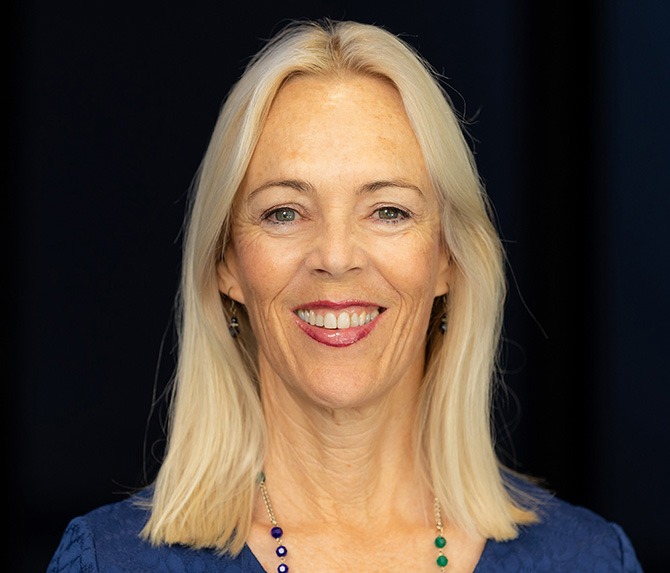Over the past few years, the words ‘scope of practice’ have been on the lips of pharmacists and government officials, with the hope of addressing some of the major challenges of our health system.
The Unleashing the Potential of our Health Workforce – Scope of Practice Review final review, delivered last year, made sweeping recommendations to how we deliver healthcare in Australia.
However, the 18 recommendations require several hurdles to be overcome before implementation – including changes to how healthcare professionals are trained, and how services are funded and regulated.
But there is movement happening. In July, Queensland pharmacy prescribing pilots became permanent, with 17 individual prescribing services now delivered across the state by pharmacists qualified to prescribe independently and autonomously.
The Queensland Government has also provided additional prescribing initiatives, including partnered pharmacist medication charting as well as therapeutic adaptation and substitution – providing pharmacists with more autonomy and options to help their patients.
Other jurisdictions around the country have also made announcements around prescribing pilots and permanent schemes.
But how far do we have to go to unleash the real potential of the healthcare workforce?
This was the burning question – among others – asked at the Scope of practice panel at PSA25 today.
When will there be harmonisation?
The federal Department of Health, Disability and Ageing has looked at the recommendation about harmonisation of the national legislative framework, said Deputy Secretary for Health Resourcing Penny Shakespeare.
‘We’ve already had a crack at trying to harmonise drugs and poisons legislation,’ she said. ‘We did a plan about 10 years ago, but we really need to take that forward now – and we’re trying to get all of our governments to sign up to that.’
The department also needs to map out what the response will look like in the longer term, including how the health system’s funding and training arrangements are reformed.
‘We need to have a common approach, and if we do not reform in a coordinated way, we will actually hold back implementation of arrangements of practice,’ Ms Shakespeare said. ‘We’ve really got to try and lock down why we have differences at a state-by-state level, work through if they are evidence-based. And if not, we’ve got to try and make full changes to implement consistency.’
What’s the value for patients?
ACT-based Shivana Chandra, who works for the Health Care Consumers Association as a research officer, said she can often wait 3–4 weeks to get a GP appointment.
‘And if you’ve got a UTI, that is not a nice time to wait,’ she said.
Having the UTI prescribing pilots and programs around the country means patients can access the care they need much faster – preventing further deterioration of health.
‘But it’s also a cost issue,’ Ms Chandra said. ‘It takes away that cost pressure of having to pay for the GP, then go back to the pharmacist to get treatment.’
But there is not much community awareness of these various pilots and programs, Ms Chandra thinks.
‘You never see any promotions for these programs about what’s happening in pharmacy,’ she said. ‘So you miss a lot of opportunities that way.’
Consumers also rely on healthcare professionals to get their information.
‘There needs to be better promotion from the pharmacists themselves about what they offer, how you can access it and where you can find out more information about it.’
What does it take to embed independent prescribing?
The United Kingdom has had it easy in terms of implementing pharmacist prescribing nationwide, according to Honorary Professor of Pharmacy Policy and Practice
University of Nottingham Bruce Warner.
But there are definitely some lessons Australia can take from the UK, which introduced independent prescribing in 2006.
‘While it’s not a quick process, it’s really important to get the foundations in place, and you have to bring people along with you,’ he said.
‘We spent a lot of time putting infrastructure in place, [including] things such as making sure our community pharmacies had a secure email address, which was one of the objections towards [pharmacist prescribing].’
Pharmacists should also expect a fair amount of scrutiny, but there is a way forward.
‘I was working with our National Patient Safety Agency when independent prescribing came in, and we were getting daily requests from the medical press asking, “How many errors are pharmacists making? How many patients are being harmed?”’ Prof Warner said.
‘Of course the reality was far fewer than they thought, but the scrutiny was intense. And you have to be able to live with that, anticipate that, and be able to work with that and work through it.’
But in 2026, the UK’s first pharmacy graduates will automatically become pharmacist prescribers.
‘That will change things dramatically,’ he said.
Could pharmacists prescribe on the PBS in the future?
Access to subsidised medicines for pharmacists is essential, Ms Shakespeare said.
‘We need [subsidised] supply of medicines to actually deliver change for consumers, and that’s not what we’ve got,’ she said.
But there are some issues that need to be addressed first.
‘We’ve got a single professional body deciding whether a patient needs a medicine and financially benefiting from the supply of that medicine,’ Ms Shakespeare said. ‘[But] we have the technology [to develop] protocol-based, electronic clinical decision support systems.’
Supporting effective multi-disciplinary team-based care, allowing for information about changes in a patient’s medicine regimen to be shared with all members of the care team, is also a top priority.
‘That’s the building block we’re really focused on at the moment, and have been developing work on that in the department.’
What about substitutions?
While Queensland-based pharmacists are now able to make adaptations and substitutions to prescriptions, the altered scripts will not be PBS subsidised, which multi-pharmacy owner and PSA Board Director Bridget Totterman MPS finds ‘extremely frustrating’.
‘It makes no sense that a patient can’t access the PBS for a script that is either adapted, substituted or prescribed,’ she said. ‘Let the pharmacist help the first time.’
However, it is a step forward. After all, there would be no NIPVIP without QPIP.
‘We’re absolutely going to fight and advocate for common-sense reform, but we will celebrate the wins along the way,’ she added.




 Deborah Williams at the Chemist Warehouse Australian Open pop-up pharmacy[/caption]
Deborah Williams at the Chemist Warehouse Australian Open pop-up pharmacy[/caption]


 Rebecca Davies[/caption]
Rebecca Davies[/caption]

 Professor Clare Collins[/caption]
Professor Clare Collins[/caption]
 Associate Professor Trevor Steward[/caption]
Associate Professor Trevor Steward[/caption]







